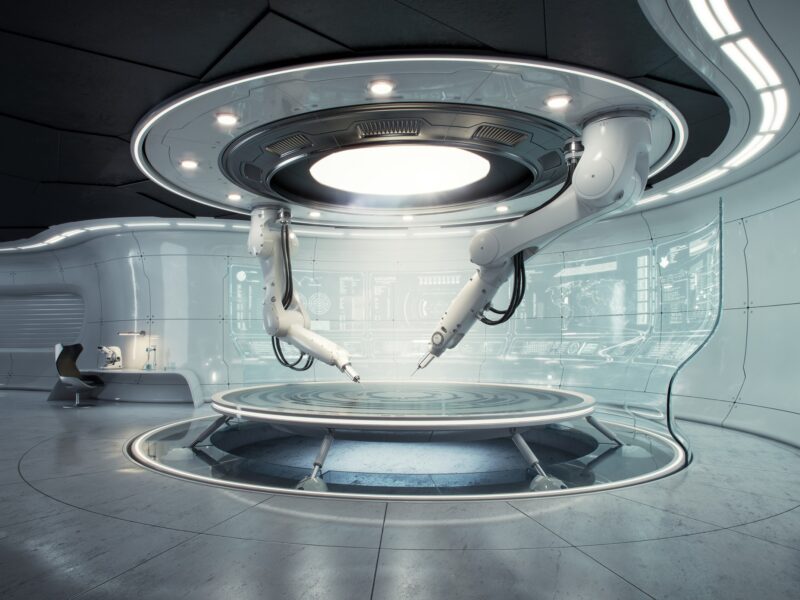Toppe Consulting – Your Source for Digital News & Trends in the Legal Industry
American manufacturing faces a technology paradox that threatens to reshape the industrial landscape. While 80% of manufacturers are either using or planning to adopt generative AI according to Microsoft’s 2025 Manufacturing Signals Report, the sector simultaneously confronts an unprecedented workforce crisis that artificial intelligence was supposed to solve—but is instead compounding.
The numbers paint a stark picture. The U.S. manufacturing sector contracted for the eighth consecutive month as of October 2025, with the Institute for Supply Management’s Manufacturing PMI registering 48.7%—well below the 50% threshold indicating expansion. Meanwhile, 313,000 durable goods manufacturing jobs remain unfilled as of April 2025, according to the U.S. Chamber of Commerce, despite manufacturers desperately seeking workers to operate increasingly automated facilities.
This creates an impossible situation: companies are investing billions in AI and automation to address labor shortages, yet 94% of executives acknowledge a critical skills gap in their workforce, according to Deloitte and The Manufacturing Institute. The technologies meant to reduce dependency on human workers instead require highly skilled technicians who can program, maintain, and optimize these systems—exactly the workers manufacturers cannot find.
The skills crisis intensifies as 2.7 million baby boomers are expected to retire by 2025, taking decades of institutional knowledge with them. Traditional manufacturing expertise is walking out the door faster than companies can transfer that knowledge to younger workers, who themselves need entirely different skill sets focused on AI, robotics, and Industrial Internet of Things systems. Understanding The $1 Trillion Skills Gap: How AI Automation Is Widening Manufacturing’s Workforce Crisis becomes critical as this paradox plays out across different manufacturing segments.
Implementation barriers extend beyond workforce challenges. Nearly half of manufacturers cite data protection concerns—from intellectual property theft to regulatory compliance—as factors impacting their AI adoption decisions. These security anxieties aren’t unfounded in an era where connected factories create multiple entry points for cyber threats while proprietary manufacturing processes become vulnerable to digital espionage.
The financial stakes couldn’t be higher. If the manufacturing skills gap remains unaddressed, 2.1 million jobs could go unfilled by 2030, potentially costing the nation $1 trillion in 2030 alone, according to research published by The Manufacturing Institute. This isn’t a distant threat—manufacturers are already turning away profitable contracts due to inadequate staffing, creating a self-reinforcing cycle where companies lack resources to invest in the workforce development that might alleviate their staffing pressures.
The technology adoption challenge manifests differently across company sizes. Larger firms with 51 or more employees report 39% generative AI adoption rates, while smaller manufacturers with 50 or fewer employees show roughly half that level at approximately 20%. This disparity creates competitive imbalances where well-resourced corporations pull further ahead while middle-market manufacturers struggle to implement technologies that have become table stakes for competing in modern supply chains.
Southeast manufacturers face additional pressures as regional economic development increasingly depends on advanced manufacturing capabilities. The cybersecurity dimension explored in Manufacturing’s Data Security Dilemma: Why Nearly Half of Companies Fear AI Adoption reveals how privacy concerns prevent faster technology deployment even as competitive pressure makes AI adoption inevitable.
The question isn’t whether manufacturers will adopt AI—that decision has already been made. The question is whether they can build the workforce capabilities and security frameworks to implement these technologies effectively before the economic consequences become irreversible.
Toppe Consulting: Your Partner in Digital Growth
Toppe Consulting specializes in helping businesses navigate digital transformation through strategic marketing solutions. Our services include:
- Website Development – Professional websites that drive results
- Digital Marketing Strategy – SEO, Google Ads, social media, and comprehensive online presence management
Ready to Strengthen Your Digital Presence? Contact Toppe Consulting to discuss how we can help your business thrive in today’s competitive landscape.
About the Author
Jim Toppe is the founder of Toppe Consulting, a digital marketing agency specializing in law firms. He holds a Master of Science in Management from Clemson University and teaches Business Law at Greenville Technical College. Jim also serves as publisher and editor for South Carolina Manufacturing, a digital magazine. His unique background combines legal knowledge with digital marketing expertise to help attorneys grow their practices through compliant, results-driven strategies.
Works Cited
“2.1 Million Manufacturing Jobs Could Go Unfilled by 2030.” The Manufacturing Institute, Deloitte, themanufacturinginstitute.org/2-1-million-manufacturing-jobs-could-go-unfilled-by-2030-11330/. Accessed 7 Nov. 2025.
“Understanding America’s Labor Shortage: The Most Impacted Industries.” U.S. Chamber of Commerce, www.uschamber.com/workforce/understanding-americas-labor-shortage-the-most-impacted-industries. Accessed 7 Nov. 2025.




